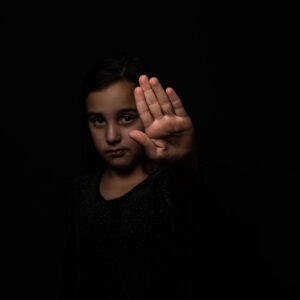MISSION STATEMENT
The Virginia State Police Human Trafficking Unit is a integral part of the Hampton Roads Human Trafficking Task Force (HRHTTF) which includes personnel from U.S. Immigration and Customs Enforcement’s (ICE) Homeland Security Investigations, the Office of the Virginia Attorney General, the United States Attorney’s Office for the Eastern District of Virginia, Samaritan House, Transitions Family Violence Services, as well as partners from local, state, and federal law enforcement and prosecutorial agencies, along with nonprofit organizations.
What is Human Trafficking?

Human trafficking, or ‘modern slavery’ is defined as the recruitment, harboring, transportation, provision or obtaining of a person for the purposes of commercial sex acts or labor services through the use of force, fraud or coercion.
The most common forms of human trafficking are labor trafficking and sex trafficking.
- Labor trafficking includes forced labor or involuntary servitude, bonded labor or debt bondage, and domestic servitude. This type of trafficking can occur at homes, hotels, and small labor operations to larger operations such as factories or farms.
- Sex trafficking includes child sex trafficking and can occur with prostitution, escort services, brothels, and massage parlors, among others.
As with many crimes, trafficking exists and continues because of the demand for services and the ‘low-risk/ high-reward’ mentality of the perpetrators.
What are the indicators of potential human trafficking?
- Does the person appear disconnected from family, friends, community organizations, or houses of worship?
- Has a child stopped attending school?
- Has the person had a sudden or dramatic change in behavior?
- Is a juvenile engaged in commercial sex acts?
- Is the person disoriented or confused, or showing signs of mental or physical abuse?
- Does the person have bruises in various stages of healing?
- Is the person fearful, timid, or submissive?
- Does the person show signs of having been denied food, water, sleep, or medical care?
- Is the person often in the company of someone to whom he or she defers? Or someone who seems to be in control of the situation, e.g., where they go or who they talk to?
- Does the person appear to be coached on what to say?
- Is the person living in unsuitable conditions?
- Does the person lack personal possessions and appear not to have a stable living situation?
- Does the person have freedom of movement? Can the person freely leave where they live? Are there unreasonable security measures?
